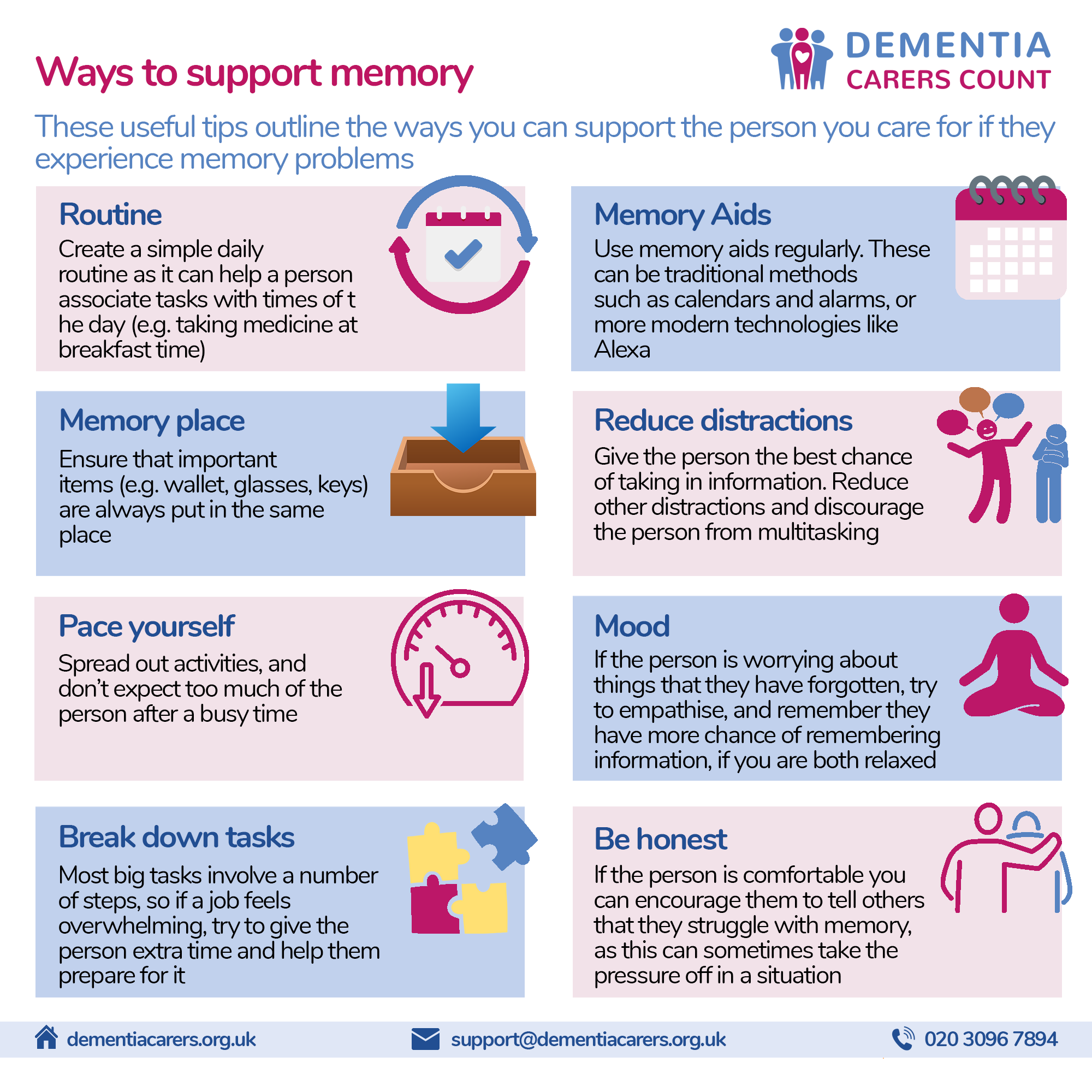Ways to support memory
This is not an exhaustive list but these are some ideas to support the person you care for if they are experiencing memory problems.
Routine
Try to continue with established routines as it takes less cognitive effort to remember things that happen at a regular time. Getting into a simple daily routine can help a person to associate tasks with times of the day (e.g. taking medication at breakfast time). A routine can also make it easier for a person to orientate themselves to the correct day.
Memory Aids
There are lots of helpful memory aids which can support memory, including traditional types below and more modern options which use voice activated technology (e.g. Alexa). All memory aids are most effective when you get into the habit of using them regularly.
- Calendar – to record appointments, and / or cross off days.
- Whiteboard – to write reminders in a prominent place.
- Alarm – can be programmed as a prompt to do tasks (e.g. take medication, feed the cat).
- Notes (e.g. ‘remember keys!’ On front door)
Memory place
Try to ensure that important items (e.g. wallet, glasses, keys) are always put in the same place. If these items are always returned to the memory place, they are less likely to be lost.
Reduce distractions
When trying to remember something, give the person the best chance of taking in the information. This means you need to reduce other distractions (e.g. radio, TV) when the person needs to concentrate on something. Discourage the person from multitasking, and encourage a focus on one task at a time. If you are trying to explain something to the person with dementia, stop whatever else you are doing and talk directly to them.
Pace yourself
When the person with dementia has been very busy, their brain will be tired – therefore less likely to function as well as usual. Try to spread out activities, and don’t expect too much of them after a busy time. Although certain events (e.g. family parties, going to busy supermarkets) are part of everyday life, this can mean the person has to deal with a high level of stimulating information which can be quite challenging.
Mood
Memory is affected by mood, so it’s important to try and reduce things that make the person feel anxious. If they are worrying about things that they have forgotten, try to empathise, validate how they feel and remember they have more chance of remembering information, if you are both relaxed. Try to ensure the person is doing things that they enjoy, and spending time with people who make them feel happy.
Break down tasks
Most big tasks involve a number of steps, so if a job feels overwhelming, try to give the person extra time and help them prepare for it (e.g. make lists, write out steps).
Be honest
If the person is comfortable with it, you could encourage them to tell others that they struggle with their memory (e.g. ‘my memory is a bit rusty’), as this can sometimes take the pressure off in a situation, and encourage others to be more supportive.

